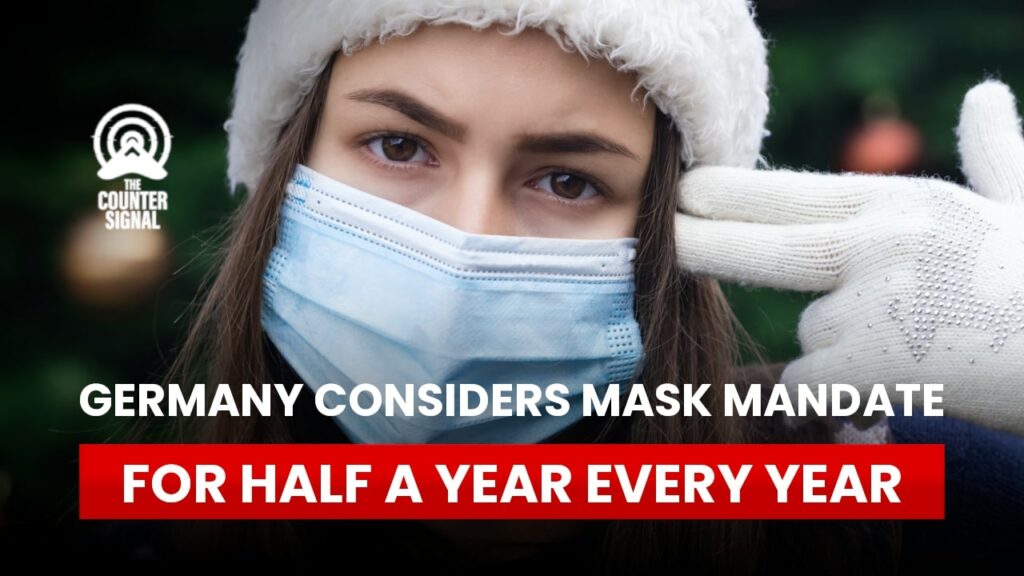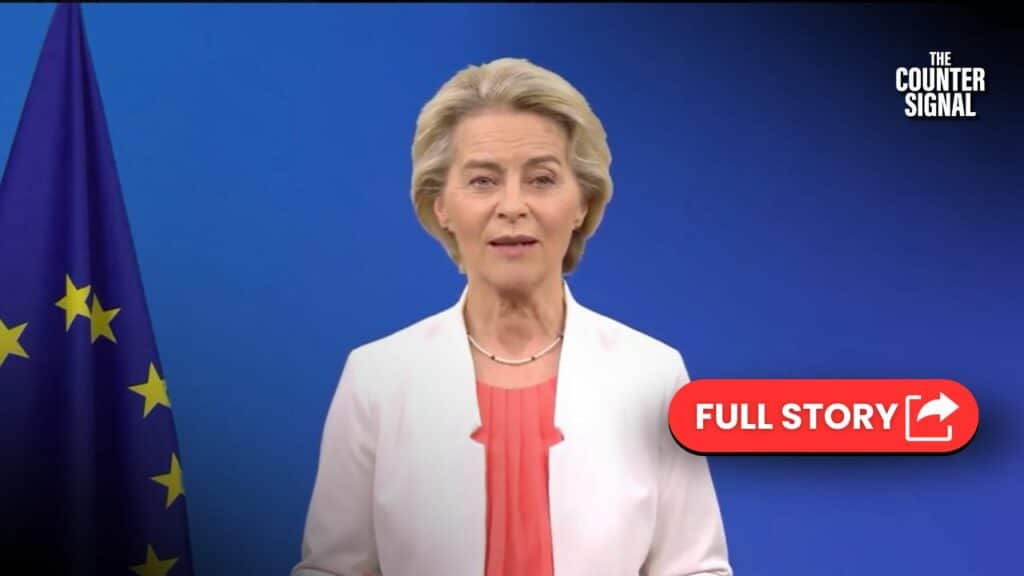In the latest bout of insanity, Germany is now mulling over implementing annual six-to-seven-month-long mask mandates, referred to as an “O-to-O” (“Oktober bis Ostern”) or an October to Easter mask mandate.

According to the German news outlet Welt, “In preparing new infection control measures, the Federal Government is intensively discussing a general obligation to wear a mask beginning in October….” [translated from German]
“Part of the coalition Government favours introducing a so-called “O-to-O” [Oktober bis Ostern” or “October to Easter”] rule, which up to now has been used primarily for motorists, requiring winter tyres on the roads between October and Easter. In future, a similar rule could apply to indoor mask mandates during this period.”
The Welt continues, reporting that they spoke with the Chancellor’s Office, which confirmed that they might implement such a policy as part of a series of upcoming amendments to the Infection Protection Act.
MORE – "Each year"https://t.co/Iyx2wk0nqF
— Disclose.tv (@disclosetv) June 17, 2022
This news comes less than a month after Germany announced that it would end most of its remaining travel restrictions.
“As of June 1, the requirements to register before entry, provide a negative test result and to quarantine only applies to travellers who have stayed in an area of variant of concern. Extension of the Ordinance on Coronavirus Entry Regulations until August 31, 2022,” reads an update on the German Federal Foreign Office’s website.
However, the country has been notably reluctant to do away with all restrictions, even going against the EU’s lead, and the government has routinely pushed for voluntary masking even where mandates have been lifted.
Indeed, earlier today, Federal Health Minister Karl Lauterbach openly stated that he wants to normalize voluntary masking indoors and said the government is securing a new supply of vaccines for the Fall — perhaps an indication that the vaccine mandate could also make a return.
“I ask those who want to protect themselves or others to wear masks indoors,” Lauterbach said. “Voluntarily wearing masks needs to be a normality indoors.”
Lauterbach gave this recommendation even while acknowledging the minuscule risk posed by Omicron, stating that “There is no need to panic.”










